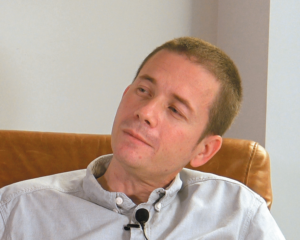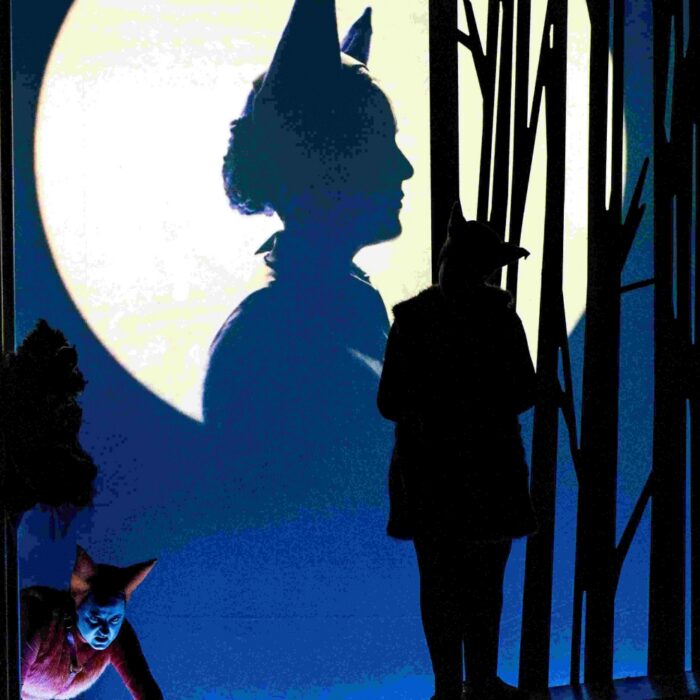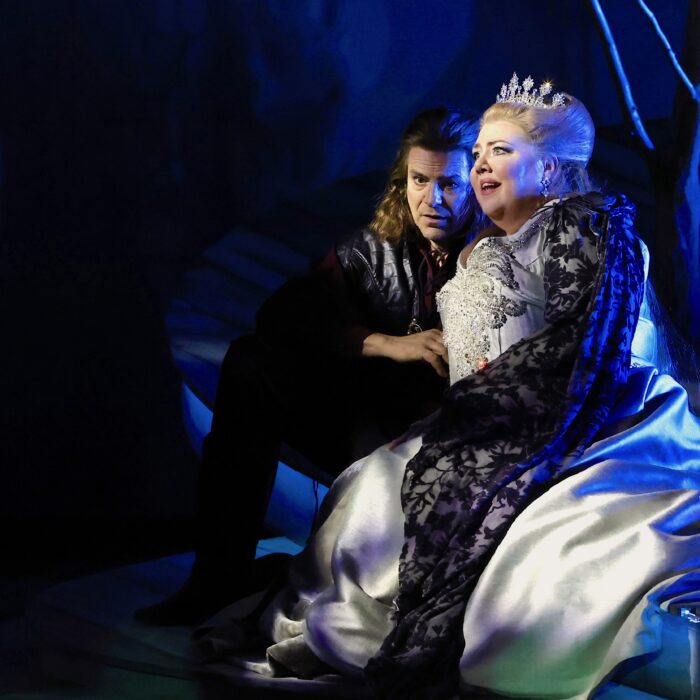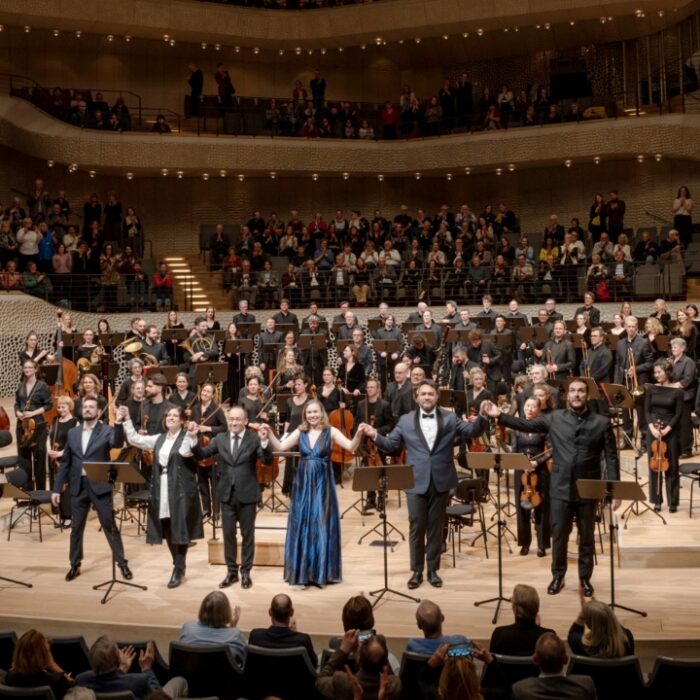
Metropolitan Opera Stars Live in Concert Review: Joyce DiDonato in Bochum, Germany
American Mezzo-Soprano Offers Up a Night of Hope & Love
By Dejan Vukosavljevic(Credit: Chris Singer)
Only seven days before the COVID-19 pandemic fell on our heads, American mezzo-soprano Joyce DiDonato was in New York portraying the role of Agrippina at the Metropolitan Opera House.
Taking on the role of the cunning queen, DiDonato already had been in the eye of the storm. At that moment very few people really understood well what was coming. The final performance in the run on March 7, 2020 came as a prelude to the events that would ultimately cripple the world of opera for many months.
DiDonato was writing history in that way. Fearless, she took the stage as COVID-19 began its deadly march in New York.
Six months later, the famed mezzo-soprano performed in the Metropolitan Opera Stars Live in Concert series. As the Met Opera General Manager Peter Gelb explained in the conversation with the host Christine Goerke, it was a huge challenge to find the proper place for the performance.
DiDonato had initially wanted to perform in Barcelona, but the Spanish metropolis again turned into a COVID-19 hotspot. The adventure then set in, with the Belgian city of Antwerp being a second choice. Famed gallerist Axel Vervoordt offered a space in his gallery for the performance. However, COVID-19 quickly dashed those hopes as well.
The Metropolitan Opera faced a daunting task to come up with a viable solution over the course of two weeks. Finally, the choice fell on Jahrhunderthalle in Germany’s Ruhr area. The former industrial complex in Bochum has only recently been used to showcase the cultural events.
DiDonato was accompanied by the chamber ensemble Il Pomo d’Oro and Canadian pianist Carrie-Ann Matheson.
The lights went on in the vast industrial hall. Standing on the big round podium, DiDonato began her musical travel into the chilly night in Bochum, in North Rhine-Westphalia.
A Promising Beginning
Being one of the finest interpreters of subtle baroque notes over the years, DiDonato chose to kick off the concert with the aria “Addio Roma” from Monteverdi’s “L’Incoronazione di Poppea.”
The emotional aria during which the exiled empress Ottavia bids farewell to her beloved Rome always requires a great deal of artistry. DiDonato started slowly, her voice a minor tremble with the opening lines “Addio Roma, addio patria, amici addio.” A painful grimace came over her face as she picked up with “Vado a patir l’esilio in pianti amari, navigo disperata i sordi mari.”
DiDonato navigated the vocal hills and valleys with ease, diminuendoing during “A veder, a baciar le patrie mura,” only to burst with higher intensity on the last “Remigate.” The final lines “Mentre dico ai parenti e a Roma” displayed a very subtle vocal flow.
The evening continued with Didon’s final scene from Berlioz’s “Les Troyens.” DiDonato clearly and strongly displayed the incoming emotional turmoil with the “Dieux immortels! Il part! Armez vous, Tyriens! Carthaginois, courez, poursuivez les Troyens!” She sang with the fantastic agility and burning passion. Singing “Ô malheureuse!” DiDonato fell on her knees, squeezing the painful sigh out of her chest. Her vocalism bloomed line after line, reaching anguishing heights in “Livrer leur flotte à l’incendie, et me venger d’Énée et lui servir enfin les membres de son fils en un hideux festin!”
DiDonato’s voice shimmered during the prayer “Du prêtre de Pluton, qu’on réclame l’office! Pour apaiser mes douloureux transports, a l’instant même offrons un sacrifice aux sombres déités de l’empire des morts!” The mezzo-soprano was fully in control of her registers throughout the aria.
The final scene of “Les Troyens” incorporates the aria “Je vais mourir.” Beginning with the persuasively acted uncontrollable cries, DiDonato radiated profound inner torment of the soul. Finally, the mezzo-soprano sounded soft and vulnerable while singing “Adieu, fière cité, qu’un généreux effort si promptement éleva florissante.”
The final lines “Je ne vous verrai plus, ma carrière est finie” put the final stamp on this account of a deeply wounded Didon.
The first part of the concert was brought to an end with “Ich bin der Welt abhanden gekommen” from Gustav Mahler’s Rückert-Lieder. The third song in this opus, “Ich bin der Welt” struck a dark and deeply vulnerable emotional tone from the beginning. Di Donato promptly followed on these shattering motives, bringing both her musicality and dramatism to the circular stage in Bochum. As she sang “Sie hat so lange nichts von mir vernommen, Sie mag wohl glauben, ich sei gestorben,” DiDonato precisely, almost surgically hit that subtle sound that cries deep within. Deeply emotional, the mezzo-soprano successfully managed to connect the vast depths of emotional despair both in her voice and in dramatic expressions.
The camera then cut to the studio and host Christine Goerke, providing us an opportunity to see DiDonato’s performance in the title the role in Donizetti’s “Maria Stuarda,” a high point of DiDonato’s Met career to date.
The Power of Nature Takes Over
The evening continued with the traditional American folk song “Oh Shenandoah.” Di Donato echoed melancholic feelings of belonging with warmth and brightness.
The rest of the second part was dedicated to the restorative power of nature in baroque works of Handel and Monteverdi.
The aria “As with rosy steps the morn” from the Handel’s “Theodora” was the first start to a trio of baroque arias. Utterly timeless and beautiful, Handel’s music brought audiences across the globe a call for illumination. DiDonato dispatched the aria with a ringing sound that reflected the power of longing for the eternal light that banishes the darkness and ugliness around. As she sang “Raise Thou our hopes of endless light. Triumphant saviour, Lord of day, Thou art the life, the light, the way,” the mezzo-soprano offered the glimmering hope in full force to the viewing public in an emotional and sensual manner.
“Illustratevi, o cieli” from Monteverdi’s opera “Il ritorno d’Ulisse in patria” followed suit. The scene is actually a duet between Penelope and Ulisse, but here Di Donato sang only the opening lines as a prelude to the duet. The mezzo-soprano was joyful throughout, singing about the nature that is flourishing with the new energy. Her sound reflected the power of the new awakenings.
“Dopo notte, atra e funesta” from Handel’s “Ariodante” brought the second part of the evening to an end. The motives in “Dopo notte, atra e funesta, splende in Ciel più vago il sole, e di gioja empie la terra” reminded us that no darkness can last forever. Light always emerges in the end and rejuvenates the body and the soul with its immortal power. DiDonato successfully presented that motive in her voice as she looked triumphant along the way. Her performance was encouraging for viewers, as she struck the tone of victory of the light and the bright.
The second break ensued, featuring a conversation between DiDonato and Sister Helen Prejean. Prejean is the famed advocate for the abolition of the death penalty. She also wrote the book “Dead Man Walking,” which served the composer Jake Heggie as the basis for his iconic opera of the same name. DiDonato was portraying the role of Sister Helen in the opera.
During the conversation, the Met Opera audiences had an opportunity to hear a message of forgiveness. Prejean explained that she wrote the book “Dead Man Walking” to help people understand that violence never solves any problem, but creates the vicious circle of more problems instead.
The conversation amplified a theme that dominated the recital, aligning perfectly with the overall performance. If we need a light in our lives, hate and vengeance can never be a part of the solution. Only the most sincere compassion can bring peace to tormented souls.
Messages of Healing Love
The third and final part of the night in Bochum started with the world premiere of “I Dream a World” by the composer Kenyatta Hughes. DiDonato looked deeply emotional as she sang about the dream of a much better world. Her voice was soft and gentle, bringing everlasting hope.
The American mezzo-soprano chose to close the evening’s offering of the baroque and early music with the famed aria “Intorno all’idol mio” from Cesti’s “Orontea.” A Dramma musicale in a prologue and three acts, “Orontea” is a rarely performed work, that had its premiere in 1656. Presenting with the bright and ringing sound, DiDonato successfully showcased the affection with which Orontea crowned the object of her love.
DiDonato then addressed the audience. She announced the final few songs of the evening, and at the same time offered a warm message to the audiences. “Even if we can’t see you, we feel you,” exclaimed DiDonato. “We are here for you, because we love you.”
Love is the way, said DiDonato. “Keep the music nourishing you.”
Cherubino’s aria “Voi che sapete” from Mozart’s “Le Nozze di Figaro” followed. DiDonato’s bright voice colored the aria with the declaration of love. With a warm timbre and the bell-like sound in the high register, DiDonato radiated the aria without any strain.
The popular “La Vie en rose” displayed a very romantic side of DiDonato’s artistry. As she sang “Quand il me prend dans ses bras, il me parle tout bas, Je vois la vie en rose” DiDonato slowly and softly longed for the stage and return to normalcy.
Finally, the American mezzo-soprano had yet another message for the audiences. “I am still dealing with a lot of grief,“ said DiDonato. She said how much she missed the stage and the Metropolitan Opera. “We will be back, but the way is challenging. And please be patient with us.”
As those words echoed around the big hall of the former industrial complex in Bochum, the message was clear. It was a message to all of us, and the story about all of us. A message about the big tragedy that hit not just the world of arts, but humanity altogether.
It was also a statement about human resilience and the determination to stand up after the fall.
The final two songs reflected these messages. “Canción al árbol del olvido,” Op. 3, No. 2 by Alberto Evaristo Ginastera and “You’ll Never Walk Alone” from Rodgers and Hammerstein’s “Carousel” presented soft, but warm musical messages to the audiences.
Canadian pianist Carrie-Ann Matheson accompanied the American mezzo-soprano with an extremely balanced sense of her richly textured voice. Matheson had no gaps or flaws but provided a smooth continuum over the course of the performance.
Il Pomo d’Oro also did extremely well, supporting DiDonato with the subtle musical performance. The orchestra regularly appears with the most prestigious opera stars, and their mastery was obvious throughout.
Joyce DiDonato offered a fantastic performance in Bochum, reveling in the vastness of her artistry. The mezzo-soprano also showcased lots of dramatic moments that gyrated from the soft and warm, to the powerful and almost explosive.
And her message to the world was clear: the light will return and guide us back.



